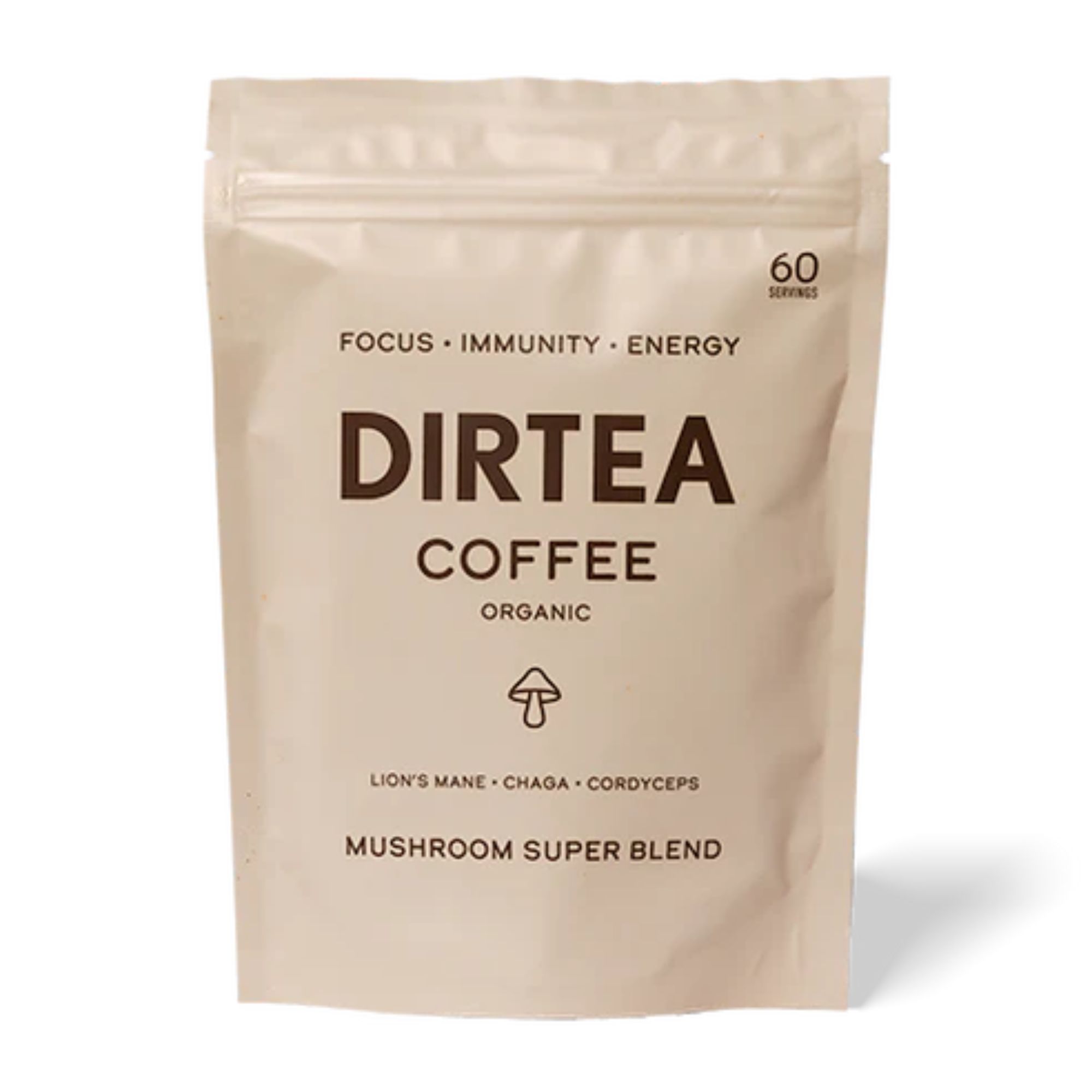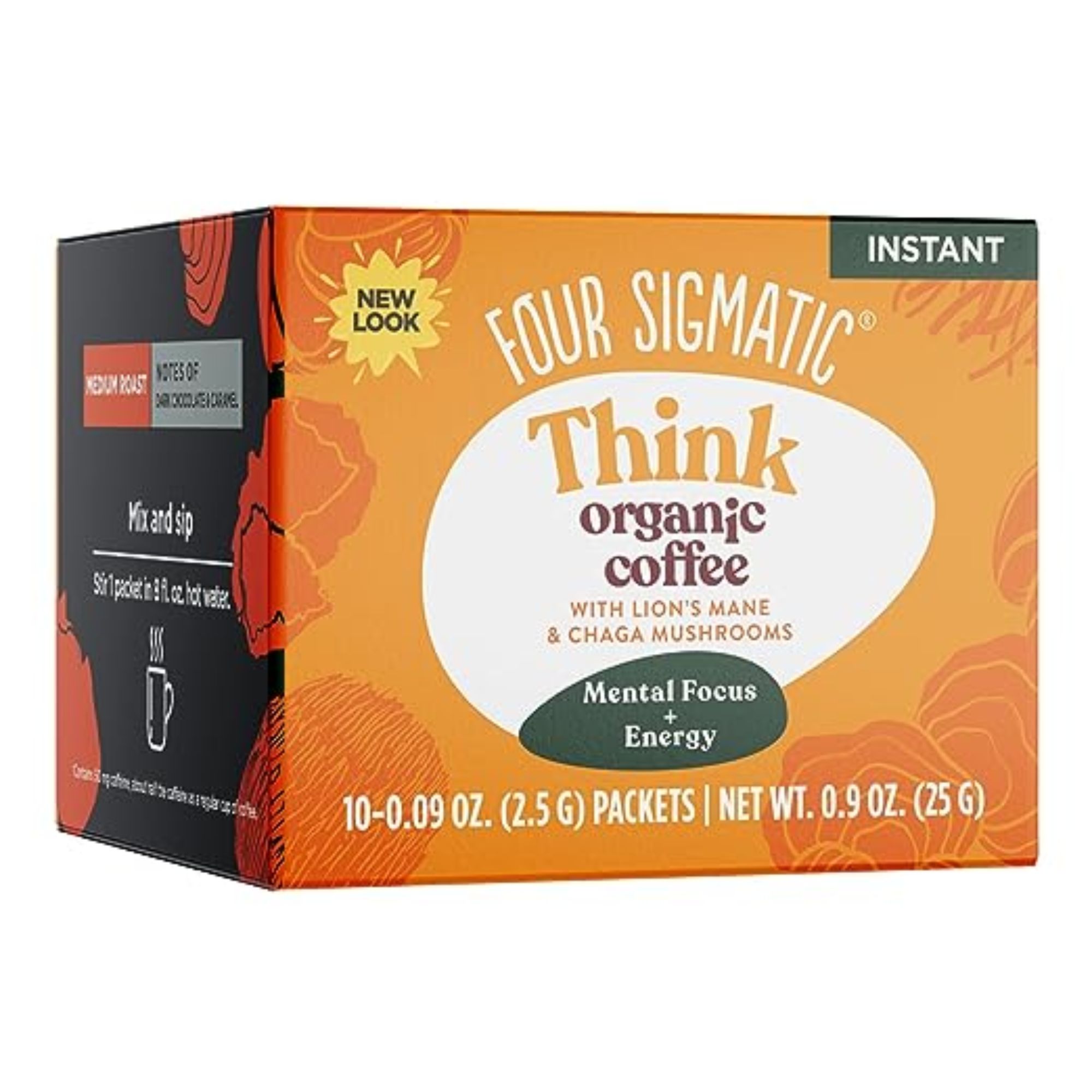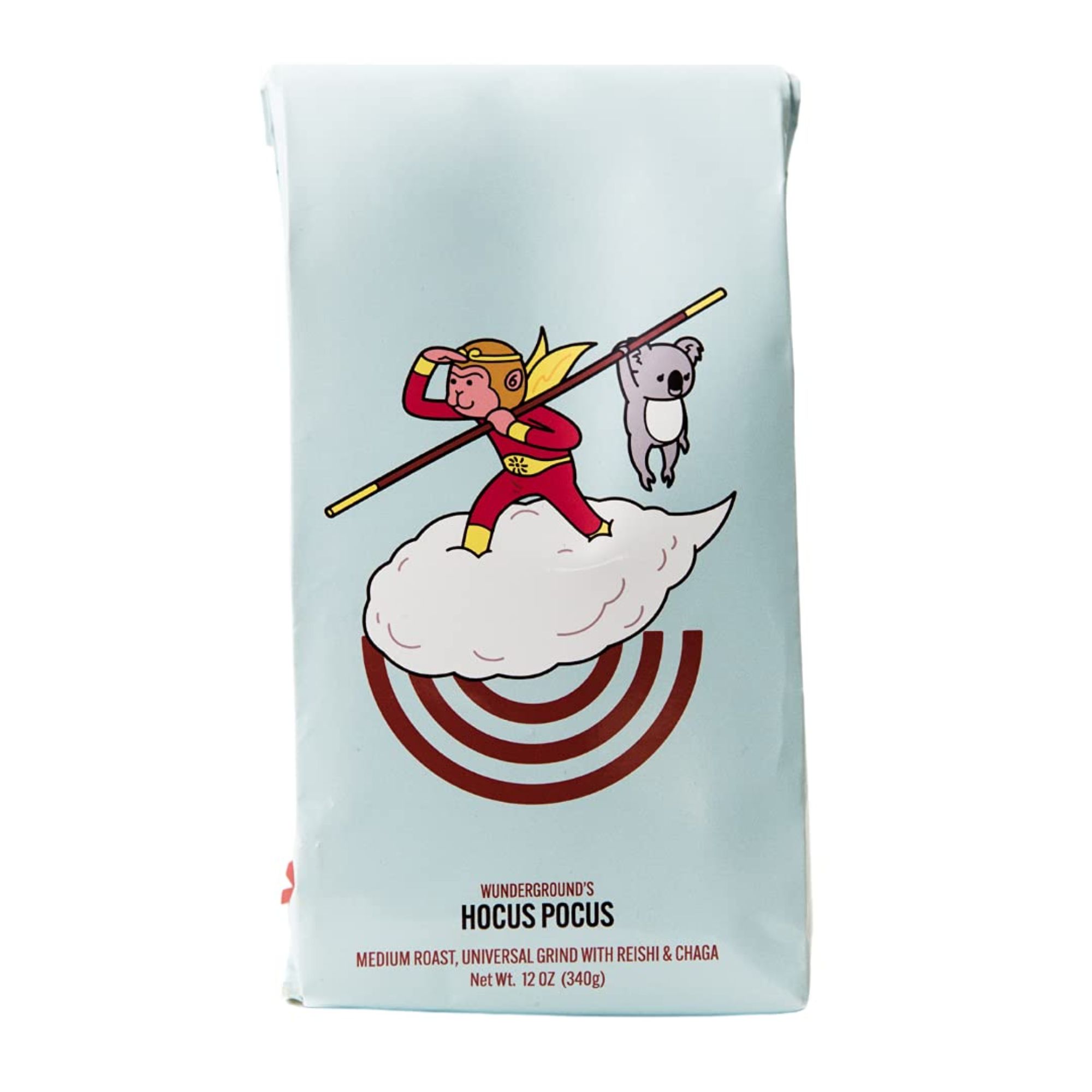I tried the mushroom coffee trend – a barista's thoughts
It sounds strange, but you might want to make the swap

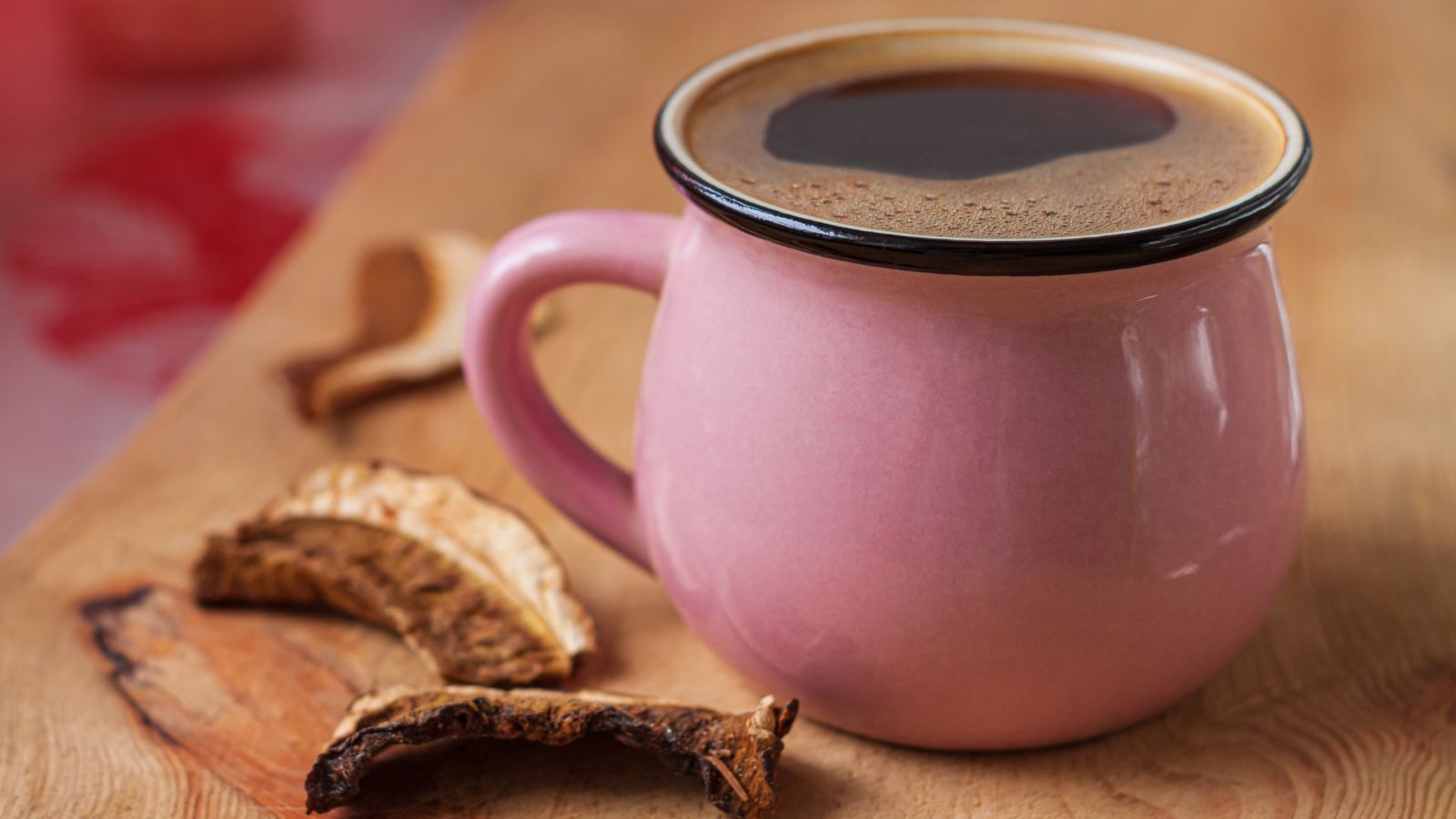
Design expertise in your inbox – from inspiring decorating ideas and beautiful celebrity homes to practical gardening advice and shopping round-ups.
You are now subscribed
Your newsletter sign-up was successful
Want to add more newsletters?

Twice a week
Homes&Gardens
The ultimate interior design resource from the world's leading experts - discover inspiring decorating ideas, color scheming know-how, garden inspiration and shopping expertise.

Once a week
In The Loop from Next In Design
Members of the Next in Design Circle will receive In the Loop, our weekly email filled with trade news, names to know and spotlight moments. Together we’re building a brighter design future.

Twice a week
Cucina
Whether you’re passionate about hosting exquisite dinners, experimenting with culinary trends, or perfecting your kitchen's design with timeless elegance and innovative functionality, this newsletter is here to inspire
What is mushroom coffee and why are people drinking it? It’s the question on everyone’s lips at the moment. Mushroom coffee doesn’t sound very appetising, but I’ve been drinking it for nearly a year now and it’s been a game changer.
Much like coffee smoothies and bulletproof coffee, mushroom coffee is one of those trends that lots of coffee shops have jumped on. You brew normal coffee beans with special mushrooms, meaning that you get to enjoy the health benefits of coffee alongside the good nutrients in mushrooms. It’s a health junkie’s dream.
If you want to know how to make mushroom coffee, the best coffee makers for brewing it, and who makes the best mushroom coffee, you’re in the right place. Here’s everything you need to know about this slightly strange, but delicious drink.
What is mushroom coffee?
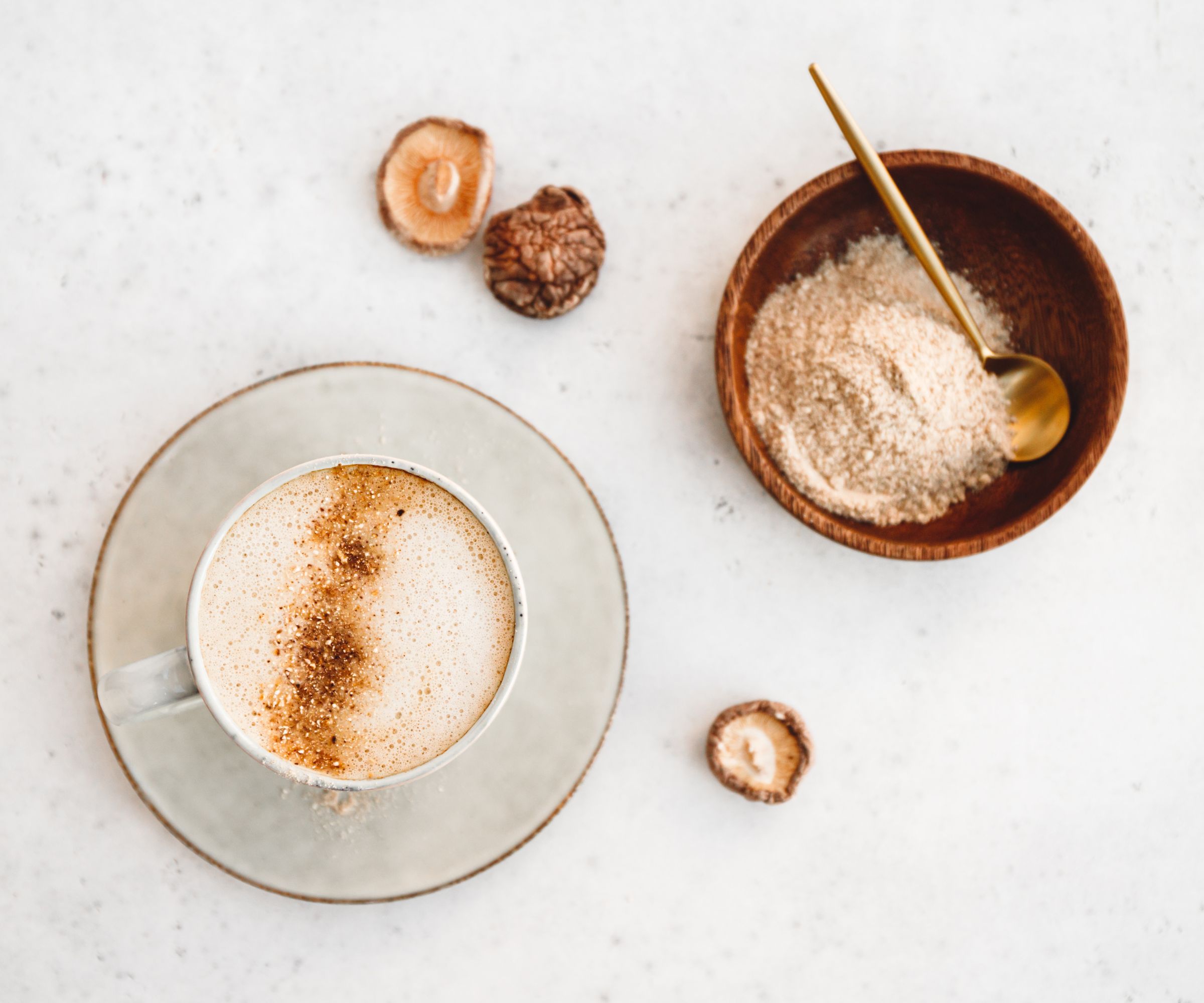
Mushroom coffee is exactly what it sounds like. It's mushrooms ground incredibly finely and brewed in the same way you'd brew a coffee. Some brands also include a mix of ground coffee.
If you don't like mushrooms, it won't be for you, but it's surprisingly delicious. Mushroom coffee is smooth, nutty, and earthy. These are all adjectives which could easily apply to regular coffee, but there's a difference. The earthiness is more potent in mushroom coffee and the overall drink tastes lighter. Regular coffee can be fruity and chocolatey, but I didn't have any mushroom coffees like this. It was rich and not sweet at all. It makes a surprisingly delicious cup of 'coffee'.
I spoke to qualified nutritionists to find out why people might want to make the switch. Sheri Berger, registered dietician, says 'mushroom coffee is a great option if you want to lower your caffeine intake or are looking for a light lift. You can drink it in the afternoon without being kept up all night'.

Sheri is a qualified dietician who works on plant-forward, balanced, sustainable nutrition. She is also a certified diabetes care and education specialist who works for a cardiac and pulmonary wellness programme.
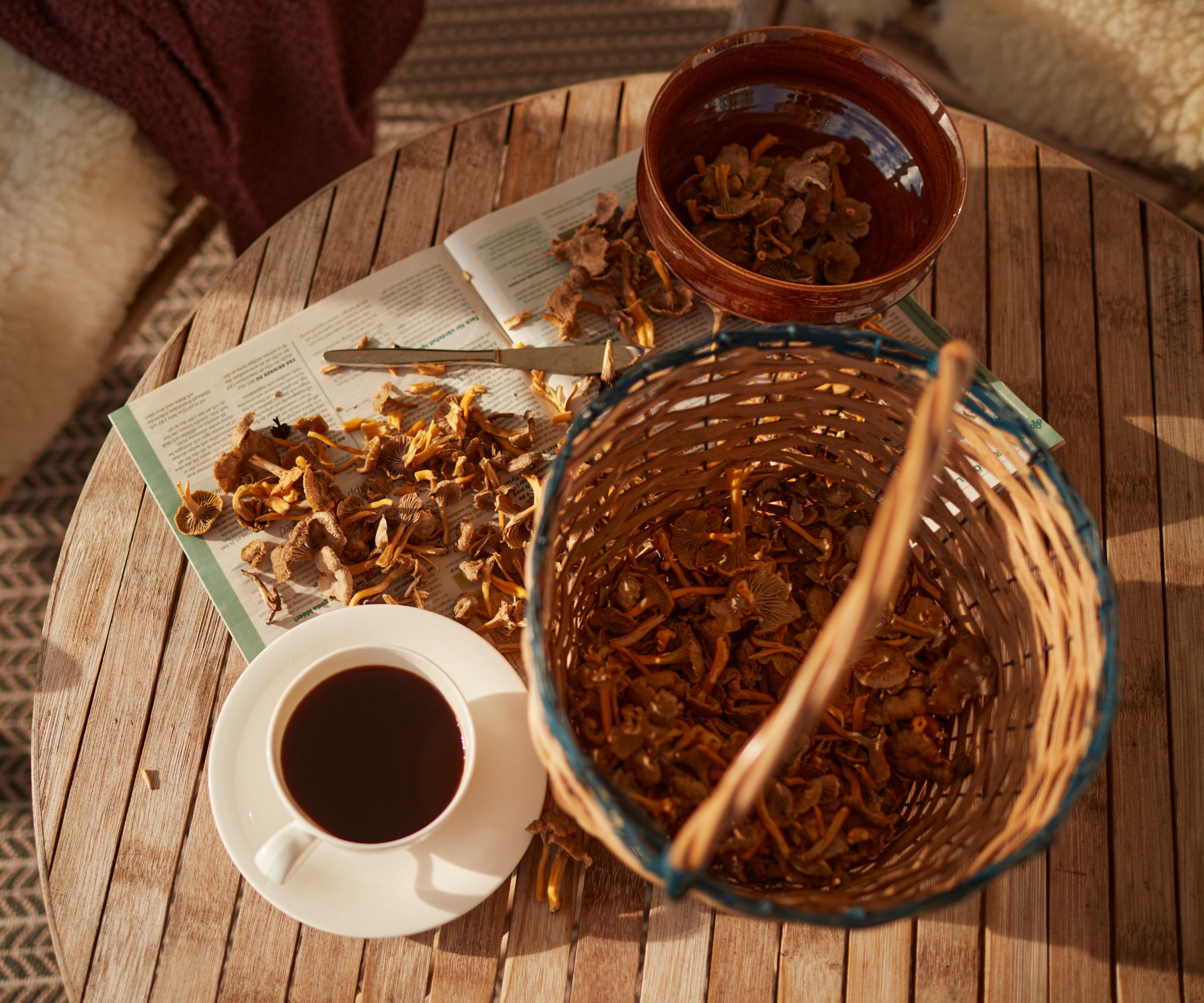
Mushroom coffee is often made with medicinal mushrooms like Chaga, Lion's Mane, or Reishi, which many nutritionists say show promising potential for benefits like improved focus, better immune system function, and stress reduction. Clarissa Berry, a qualified nutritionist, says 'mushrooms have the highest fiber content of all foods, which means they feed and nourish our gut microbiome. It keeps our gut healthy, as well as looking after our cardiovascular, immune, and nervous systems'.
Design expertise in your inbox – from inspiring decorating ideas and beautiful celebrity homes to practical gardening advice and shopping round-ups.
She explained how this works by telling me 'when mushrooms are broken down, the fiber becomes small molecules called beta-glucans, which have incredible properties. These molecules can stimulate the immune system to find and destroy pathogens and damaged cells. They are highly anti-inflammatory and have the power to regulate and soothe the body’s systems. Other active compounds in mushrooms enhance cognitive and physical performance, improve skin health, enhance sexual vitality, protect and regenerate neurons.'
Before you make the switch to mushroom coffee, you should always check with a healthcare provider because you have any auto-immune issues, allergies to fungi, or digestive issues, mushroom coffee might not be for you.

Clarissa is a registered dietician and holistic nutritionist who works with DIRTEA. Her background is in research science, so she keeps an eye on all health studies and research. Mushroom coffee has her seal of approval.
How to make mushroom coffee
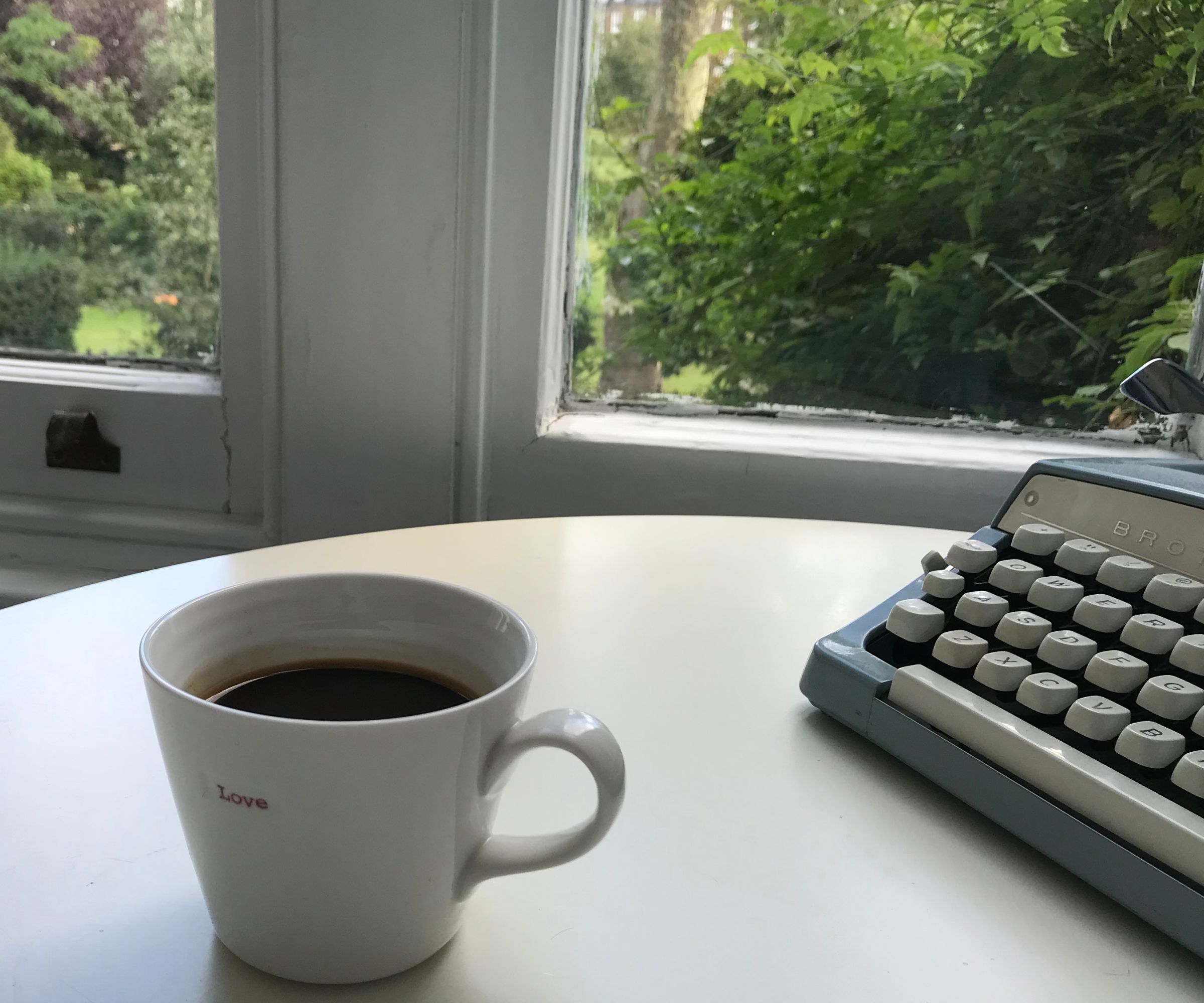
My mug of mushroom coffee
If you're new to mushroom coffee, start gently. More mild types of mushroom flavors come from blends with Chaga, when you want a stronger drink you can use Reishi blends. I used DIRTEA's coffee, as it was highly recommended in the mushroom coffee community. This is a pre-mixed mushroom coffee blend, which is a great starting point. Most mixes will have some ground coffee in, so you still get a little caffeine boost as well as enjoying the mushroom flavors.
If you're making it from scratch, you can add between half and one teaspoon of mushroom powder to a freshly brewed coffee and stir it well. You can gradually make your coffee weaker and the mushroom flavors will shine through.
I used a ready-mixed mushroom coffee blend. If you use a powder, add 2.5 grams to your cup of coffee with a 8 oz of hot water. Once you've stirred these together, they're ready to drink. If you want to try different brewing methods, you can use mushroom coffee blends like you would normal coffee grounds. They work in French presses and I've seen people on TikTok using espresso machines, drip coffee makers, and pour overs.
Most people drink their mushroom coffee with hot water, but I tried mine with some frothed milk. The results were surprisingly nice. The rich mushrooms pair beautifully with latte-texture oat milk. The creamy sweetness of the oats soften the earthy mushroom notes and give a really creamy flavor.
Tips and tricks
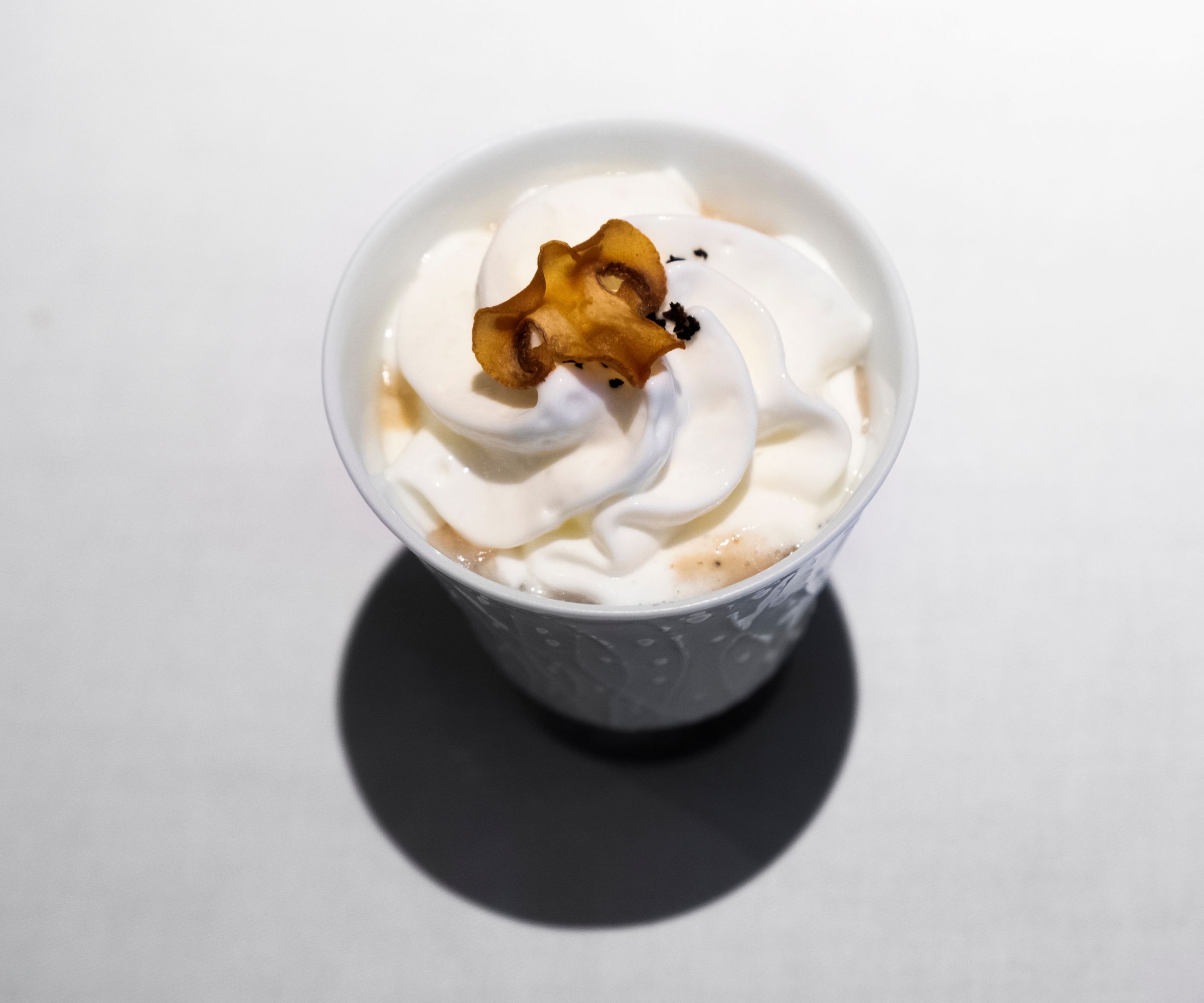
Mushroom coffee is not naturally sweet so I wanted to see what happened when I added syrups, cocoa, and spices.
First, I tried a chocolate mushroom coffee by adding a spoon of cocoa powder to the mix before I added milk and water. The cocoa works better with milk rather than water. In both cases the cocoa's bitterness enhanced the savory flavors of the mushroom. It wasn't the most delicious drink, so I added a spoon of sweetener and the whole drink transformed. It became this delicious, rich, dark drink that I now consider to be my speciality. I've played with different cocoas and the Divine Salted Caramel Hot Chocolate powder makes the best brew. Anyone coming to my home for coffee will now be served this: it's my speciality.
I tried adding some cinnamon and vanilla to my mushroom mix and they were both nice, although I felt that the flavors got a little lost amongst the mushroom coffee. Chocolate mushroom coffee is still a winning blend for me.
As an iced coffee fan, I poured some of my mushroom coffee over ice. This didn't excite me as much as I thought it would. The nuttiness of a mushroom coffee is delightful when it's warm, when it's cold, it's a bit too savory for me.
What are the downsides?
Of course, nothing is without its downsides, so there are a few things to consider. The first is that it's nowhere near as energizing as coffee. Sure, it can help to wake you up, but don't expect a caffeine rush. The other is that it doesn't taste like coffee, and while it can be delicious, you might miss the rich aroma and flavor of coffee.
More importantly, however, the health claims aren't that well researched. It's totally safe to consume, but until there's more research, it's no more or less healthy for you than eating mushrooms. It's great as part of a balanced diet but it's not magic. It's not a problem I had, but some people who have tried it found mushroom coffee harder to digest, and there's also the risk of allergy flare-ups.
FAQs
Is drinking mushroom coffee good for you?
Some people drink mushroom coffee for its health benefits, claiming that the adaptogens reduce the amount of cortisol in your system. This is supposed to reduce the effect that stress has on your body. Mushrooms also contain polyphenols (antioxidants) which can help to reduce inflammation in the body. However, more research is needed.
What is the point in mushroom coffee?
Mushroom coffee has a similar flavor profile to regular coffee, but without the caffeine. This can be useful for people who suffer from coffee shakes and anxiety, because it doesn't have the same stimulating effect on the body.
What does mushroom coffee taste like?
Lots of people describe mushroom coffee as having the earthy, nutty flavor profiles of regular coffee.
Does mushroom coffee cause GERD?
If you suffer from acid reflux with regular coffee, you might want to consider switching over to mushroom coffee. This isn't as acidic as coffee beans, so you can enjoy a warm brew without the acid reflux.
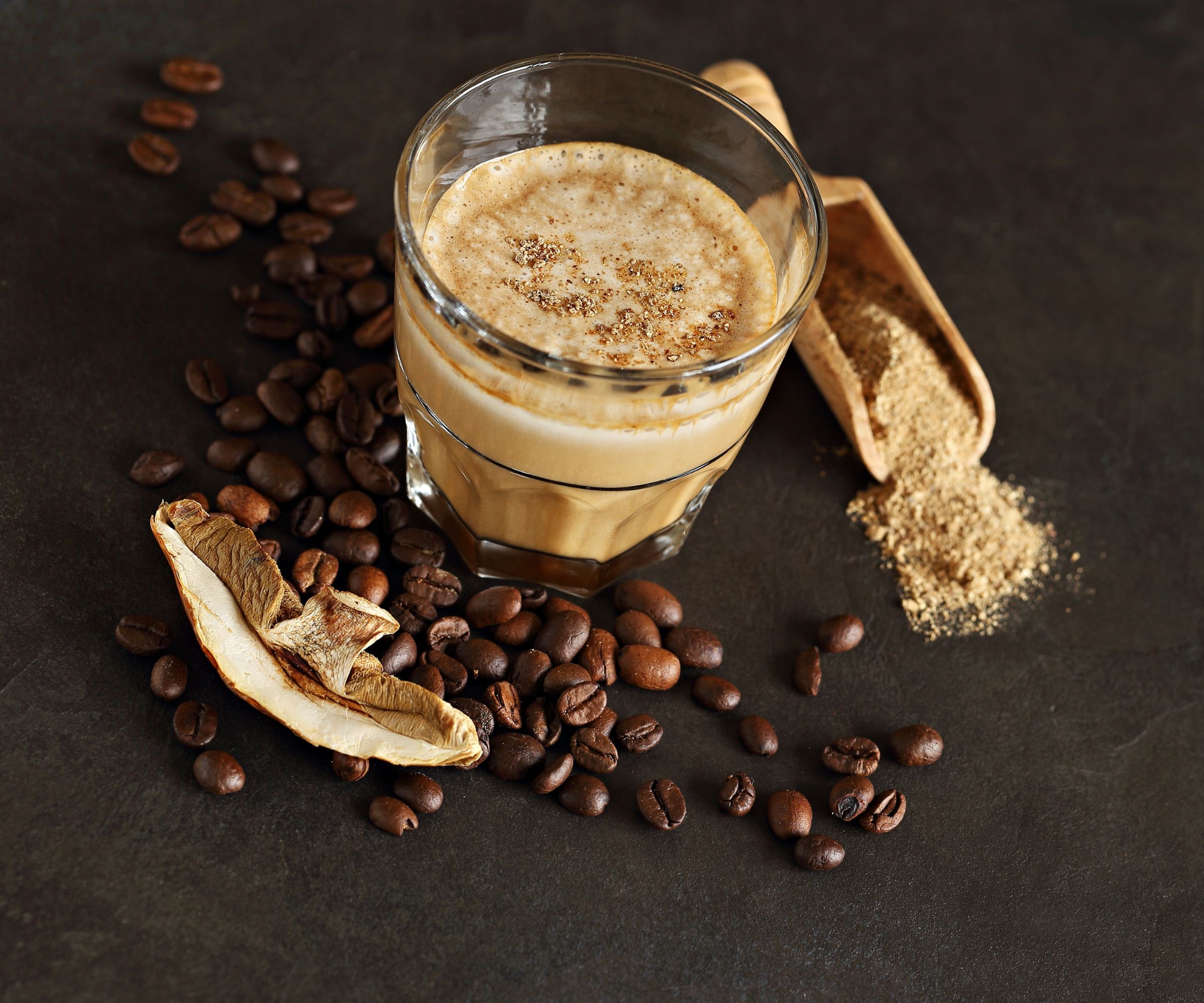
Over the years I've tried all the classic coffee alternatives: chicory (would recommend), matcha (would also recommend), beetroot (don't knock it; I would recommend), kombucha (I'm on the fence). Now, to add to the list of good coffee alternatives, I've tried mushroom coffee.
I don't consider myself a slave to TikTok, but, what can I say, it knew best. Mushroom coffee is an acquired taste. Once I'd stopped expecting sweeter, smoother brews and embraced the earthy notes, I really enjoyed my morning mushroom coffee. I also liked feeling that it was doing my body good. I don't know if it was the slower energy boosts or the antioxidants, but mushroom coffee put a spring in my step.

Laura is our eCommerce editor. As a fully qualified barista, she's our expert in all things coffee and has tested over thirty of the best coffee makers on the market. She has also interviewed Q-Graders and world-leading experts in the coffee industry, so has an intimate knowledge of all things coffee. Before joining Homes & Gardens, she studied English at Oxford University. Whilst studying, she trained as a master perfumer and worked in the luxury fragrance industry for five years. Her collection of home fragrance is extensive and she's met and interviewed five of the world's finest perfumers (also known as 'noses'). As a result of this expansive fragrance knowledge, she always puts quality and style over quantity and fads. Laura looks for products which have been designed simply and with thoughtful finishes.
